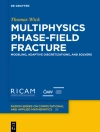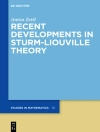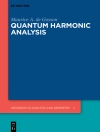Before the appearance of broadband links and wireless systems, networks have been used to connect people in new ways. Now, the modern world is connected through large-scale, computational networked systems such as the Internet. Because of the ever-advancing technology of networking, efficient algorithms have become increasingly necessary to solve some of the problems developing in this area.
‚Mathematical Aspects of Network Routing Optimization‘ focuses on computational issues arising from the process of optimizing network routes, such as quality of the resulting links and their reliability. Algorithms are a cornerstone for the understanding of the protocols underlying multicast routing. The main objective in the text is to derive efficient algorithms, with or without guarantee of approximation. Notes have been provided for basic topics such as graph theory and linear programming to assist those who are not fully acquainted with the mathematical topics presented throughout the book.
‚Mathematical Aspects of Network Routing Optimization‘ provides a thorough introduction to the subject of algorithms for network routing, and focuses especially on multicast and wireless ad hoc systems. This book is designed for graduate students, researchers, and professionals interested in understanding the algorithmic and mathematical ideas behind routing in computer networks. It is suitable for advanced undergraduate students, graduate students, and researchers in the area of network algorithms.
Inhaltsverzeichnis
Preface.- 1. Unicast Routing Algorithms.- 2. Multicast Routing.- 3. Steiner Trees and Multicast.- 4. Online Multicast Routing.- 5. Distributed Algorithms for Multicast Routing.- 6. Center-Based Trees and Multicast Packing.- 7. Metaheuristics for Multicast Routing.- 8. The Point-to-Point Connection Problem.- 9. Streaming Cache Placement.- 10. Algorithms for Cache Placement.- 11. Distributed Routing on Ad Hoc Networks.- 12. Power-Aware Routing in MANETs.- Appendix.- References.- Index.
Über den Autor
Carlos Oliveira obtained a Ph D in Operations Research from the University of Florida, a Masters in Computer Science from Universidade Federal do Ceará, Brazil, and a B.Sc. in Computer Science from Universidade Estadual do Ceará, Brazil. Carlos has spent more than ten years working on combinatorial optimization problems in several areas, including telecommunications, computational biology, and logistics. He has written more than 20 papers on optimization aspects of these areas. He is an associate editor for J. of Global Optimization and Optimization Letters.
Carlos was assistant professor at Oklahoma State University from 2004 to 2006. Since then he has worked as a consultant in the areas of optimization and software engineering. He works in New York City and lives in New Jersey with his wife and son. Carlos Oliveira can be contacted at his web site http://coliveira.net.
Panos Pardalos is Distinguished Professor of Industrial and Systems Engineering at the University of Florida. He is also affiliated faculty member of the Computer Science Department, the Hellenic Studies Center, and the Biomedical Engineering Program. He is also the director of the Center for Applied Optimization.Dr. Pardalos obtained a Ph D degree from the University of Minnesota in Computer and Information Sciences. Dr. Pardalos is a world leading expert in global and combinatorial optimization. He is the editor-in-chief of the Journal of Global Optimization, Journal of Optimization Letters, and Computational Management Science. In addition, he is the managing editor of several book series, and a member of the editorial board of several international journals. He is the author of 8 books and the editor of several books. He has written numerous articles and developed several well known software packages. His research is supported by National Science Foundation and other government organizations. His recent research interests include network design problems, optimization intelecommunications, e-commerce, data mining, biomedical applications, and massive computing.












